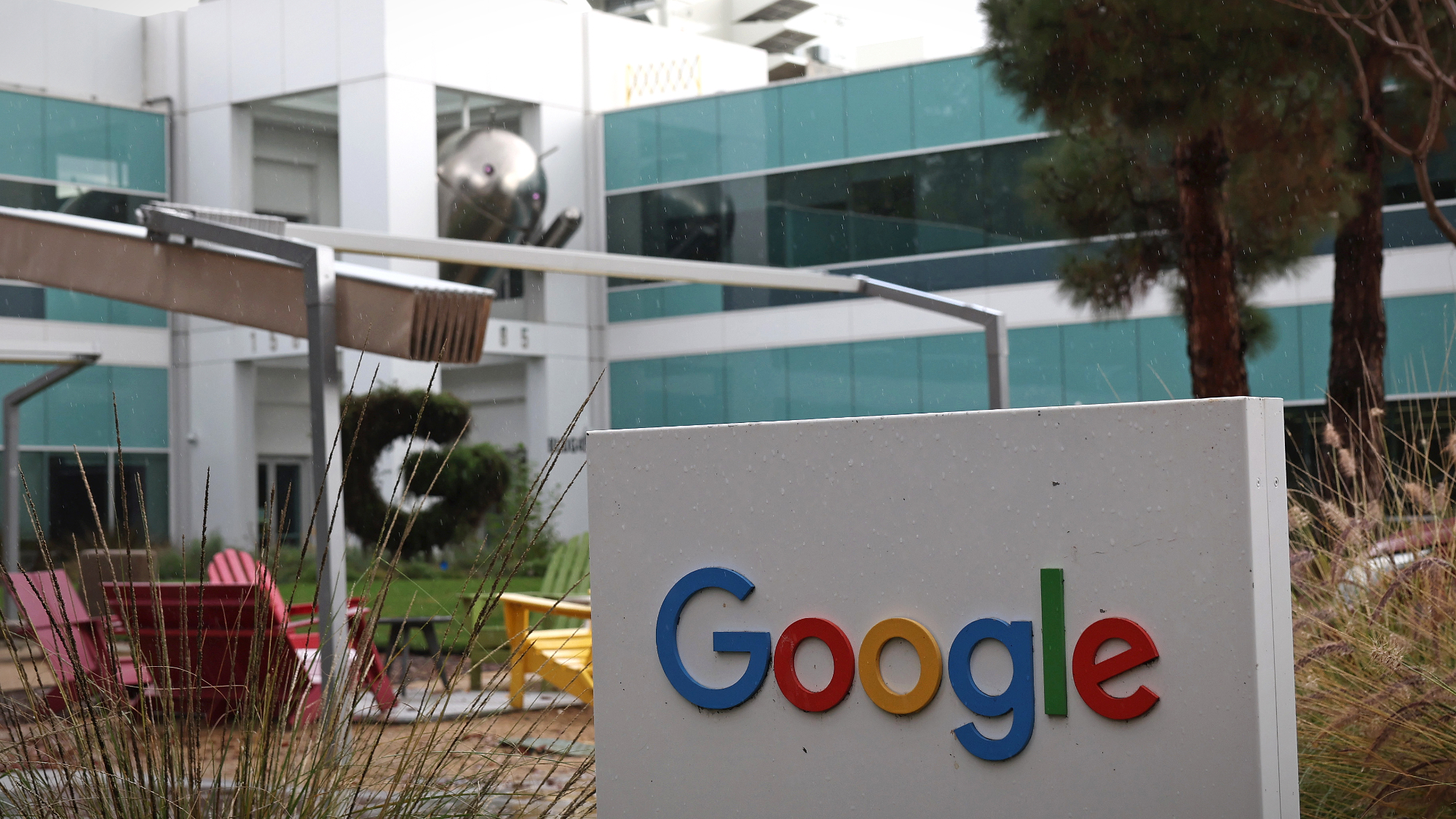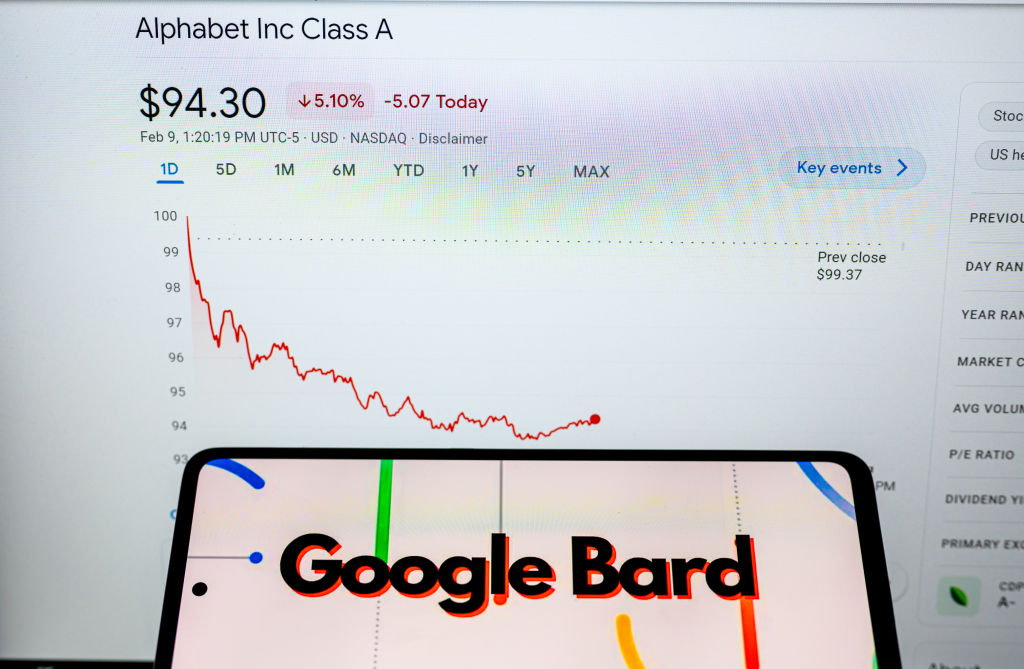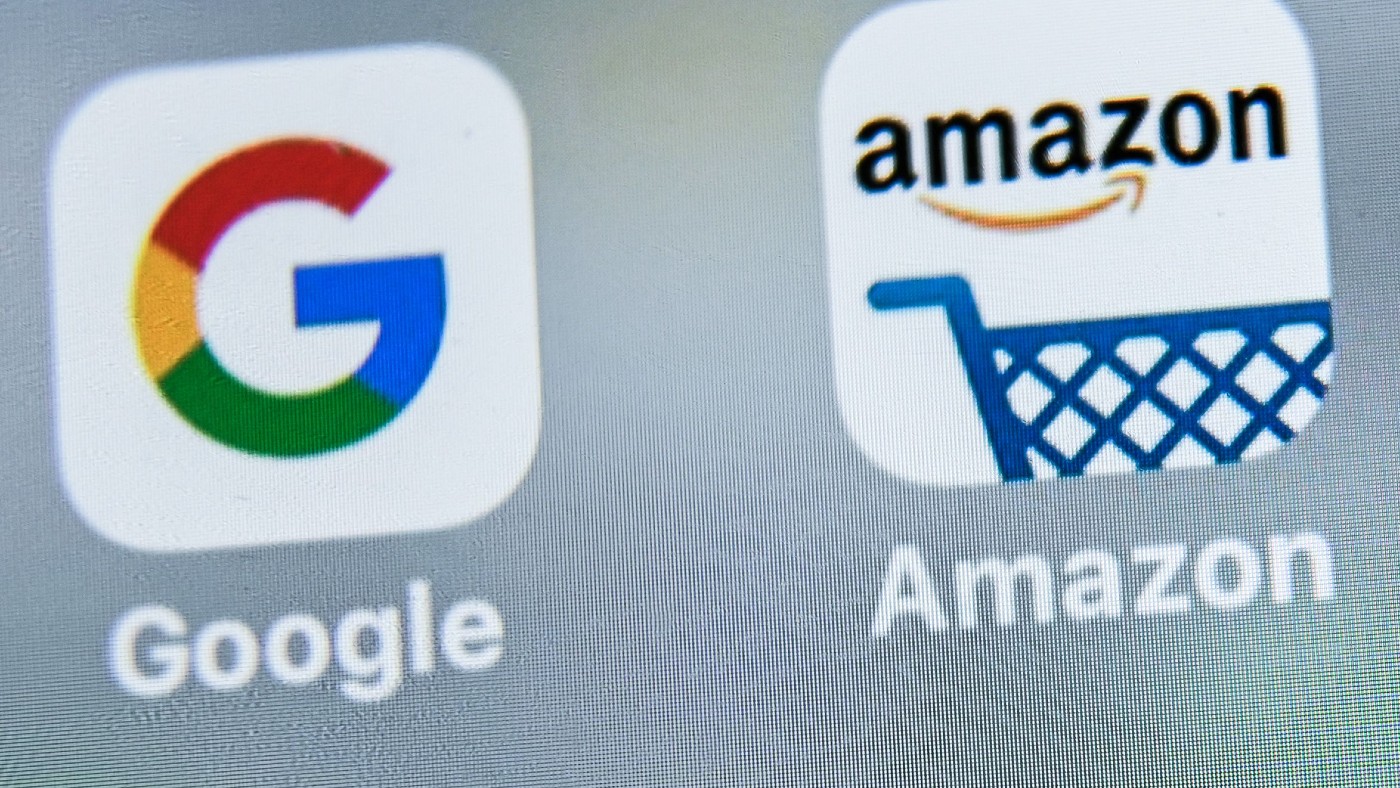Google hit by another tax raid in Europe
Spanish police search internet giant's Madrid offices just weeks after French HQ comes under spotlight

A free daily email with the biggest news stories of the day – and the best features from TheWeek.com
You are now subscribed
Your newsletter sign-up was successful
Google tax deal 'not a glorious moment', says Javid
01 Februarie
Sajid Javid has seemingly criticised the tax settlement between Google and the UK, just a week after the Chancellor hailed it a "major success".
Speaking on BBC's Andrew Marr Show, the Business Secretary said the controversial £130m deal was "not a glorious moment" for the government and that "more needs to be done" to ensure large companies pay the correct corporation tax.
The Week
Escape your echo chamber. Get the facts behind the news, plus analysis from multiple perspectives.

Sign up for The Week's Free Newsletters
From our morning news briefing to a weekly Good News Newsletter, get the best of The Week delivered directly to your inbox.
From our morning news briefing to a weekly Good News Newsletter, get the best of The Week delivered directly to your inbox.
"I speak with thousands of companies small, medium-sized as well as, of course, large companies, and there is a sense of injustice in what they see," he said. Some estimates put the effective tax rate implied within the Google deal at as little as three per cent.
The arrangement could still be seen as a "success" if it helps to change corporate behaviour, added Javid.
Speaking last week, George Osborne hailed the deal, which covers claims over ten years of back taxes, a "victory", in contrast to the Business Secretary's comments yesterday.
However, the Chancellor also similarly said it was just the start of tackling the low amounts of tax paid by some multinationals and that, combined with a new diverted profits tax and other measures on international taxation, it would help to reduce avoidance.
A free daily email with the biggest news stories of the day – and the best features from TheWeek.com
Google's deal has sparked a bitter row over the amount the tech giant and other major companies pay in the UK. For its part, the internet giant says it pays plenty of tax internationally and that it has always complied with UK tax law and will continue to do so as the rules change.
Peter Barron, the senior Google executive in charge of its European press relations, also yesterday told the BBC that the company was in favour of international tax reform to bring "more simplicity and more clarity" to help ensure it is "seen to be paying the right amount".
The Organisation for Economic Co-operation and Development has agreed new rules it hopes will do just that – but some argue the furore should prompt an even more radical set of changes to how taxes are applied.
Right-leaning think tank the Adam Smith Institute says that while corporations "used to be a useful proxy as a place to tax the returns to investors", complexity of the rules has meant "they are clearly no longer". Instead, it calls for governments to abolish clumsy corporation tax and increase existing or introduce new taxes on income and consumption.
Has Google managed to dodge the so-called 'Google Tax'?
29 January
A report in The Times claims that the so-called "Google Tax" introduced in 2014 to stop global technology companies avoiding UK tax does not apply to - Google.
HMRC "failed to recover a penny from Google" through the properly titled diverted profits tax during negotiations that last weekend resulted in the company agreeing to pay £130m to settle claims over its tax affairs dating back to 2006, says the newspaper. "Instead, officials are understood to have concluded that the company’s offshore arrangements were legitimate."
However, there is considerable doubt the new levy would have been up for discussion. The new tax, which is charged at 25 per cent on profits deemed to have been shifted overseas through means that lack "economic substance', only applies to profits made from 1 April 2015 onwards. Google's £130m payment related to claims up to 2014 only.
What the article shows is the level of scepticism on the part of observers over Google's tax deal and the government's ability - or willingness - to ensure large corporates pay their fair share. The public mood is decidedly angry at a time when the government is cutting public spending elsewhere.
The row has brought some positive headlines for European Union officials, however, something they will welcome ahead of the upcoming referendum on EU membership expected this year. The BBC says the European Commission may investigate Google's £130m deal in the wake of a complaint lodged by SNP deputy leader Stewart Hosie.
For its part, Google has said it pays a fair share of tax on its global activities in a way that complies with a new set of international tax rules. In particular it pointed to $3.3bn (£2.3bn) of corporation tax it paid in the US alone last year.
Top Google investor calls for company to pay more tax
28 January
The increasingly acrimonious row over the amount of taxes Google pays in the UK took another turn today after one of its top investors said it should pay more.
One of the frequent refrains of the debate has been that global firms are merely making legal use of the arbitrage between tax regimes in different countries and that they have an obligation to shareholders to minimise their tax bill in this way.
However, James Anderson, who runs the £3bn Scottish Mortgage Investment Trust that has a £120m investment in Google's parent Alphabet, disagrees.
Speaking to The Times, Anderson said it was in the long-term interest of technology companies to retain goodwill by voluntarily paying "much more" tax in the countries in which they operate. He called on Google to lead a campaign for a 15-20 per cent global tax on profits.
"My take remains that it is in the long-term interests of Google and others of that ilk to pay decent rates of tax and that they and others would be best served in taking the lead in volunteering this," he said. "They are beneficiaries of state spending at many levels and in return they would get respect."
But Google is not lying down and taking the battering it is getting over its £130m tax deal with HMRC, which some argue amounts to a UK tax rate of three per cent. In a letter to the Financial Times, the company said it pays fair tax on a global activities, including $3.3bn (£2.3bn) in the US last year alone, and that the UK deal had been misrepresented.
"In all the coverage of Google’s tax settlement, little has been said about the international tax rules and how they work. Corporation tax is paid on profits, not revenue, and is collected where the economic activity that generates those profits takes place," wrote Peter Barron, the company's vice president of communications and public affairs.
"As a US company, we pay the bulk of our corporate tax in the US: $3.3bn in the last reported year. What should Google pay in the UK? We pay tax based on the value added by the economic activity of our staff here at the current standard rate: 20 per cent."
The latest interventions come on the day 31 countries - including the UK, France and Australia, but not the US – have agreed new rules designed to prevent multinational companies from avoiding their tax bills.
Developed by the Organisation for Economic Co-operation and Development, the system will force companies to report how much money they make and how much tax they pay in each signatory country. Governments can then share that information with each other to ensure that companies are paying what they owe.
In his letter, Barron effectively claimed this is what Google is doing already, the BBC says.
Google tax deal: 'major success' or 'derisory' insult?
26 January
It was revealed at the weekend that Google had made a £130m payment to settle a dispute over a decade of modest tax contributions in the UK.
Immediately hailed by Chancellor George Osborne as a "major success" and "a victory", there has been mounting opposition to the agreement since. One Conservative MP said it was a "derisory" amount, equating to a tax rate of just three per cent a year, Labour shadow chancellor John McDonnell called it a "sweetheart deal" and the Tory chair of the Treasury select committee announced a probe into tax collection.
Three per cent isn't that much, is it?
No, it's not. It's also only an estimate, but almost everyone reckons that a deal which amounts to £13m per year is a single-digit tax rate compared to Google's profits in this country. The headline corporation tax rate is 20 per cent now and was even higher in past years.
So why didn't HMRC just take Google to court?
Because tax rules are not that simple. The company's European boss, Matt Brittin, told the BBC that for the period in question, "the rules were to pay in respect of profits you make in a country", with no regard to where those sales were made. Google typically made modest or no profit in its UK arm, while billions of pounds of online advertising revenues made here were booked in other countries.
Is that legal?
As long as it's done properly, absolutely – and Google is not the only company doing so. That's why the BBC's Jonty Bloom says HMRC probably thought "a bird in the hand was worth two in the bush" and decided against a lengthy (and costly) court case it might have been unable to win.
What can be done to improve the situation?
The Chancellor has already introduced a tax on profits that are artificially "diverted" overseas, while the Organisation for Economic Cooperation and Development is shaking up international rules to force profits to better reflect local revenues. Brittin said "rules are changing internationally and the UK government is taking the lead in applying those rules, so we'll be changing what we are doing here".
So Google will apparently pay more UK tax in future. Some say the rules still include glaring holes and the Treasury committee will investigate how to ensure UK tax authorities force companies to pay a fair share. Its chair, Andrew Tyrie MP, said fundamental reforms would "probably now have to be considered", notes the Financial Times, including taxing revenues rather than profits.
What else is being done?
However international rules change, the issue also in part reflects individual jurisdictions competing with lower tax rates and special deals to attract multinational companies. On this front, the European Commission is clamping down by forcing companies to recover taxes where one company is seen to enjoy a competitive advantage, constituting illegal "state aid".
Luxembourg, the Netherlands and Belgium have already been ordered to recover hundreds of millions of euros from companies including Starbucks, Fiat Chrysler and Budweiser-owner AB InBev. A ruling is expected on the next big case involving Apple in Ireland, which could see a clawback bill of up to €16bn (£12bn).
Google tax deal: anger over £130m payment to HMRC
25 January
Google's agreement with the UK Government to pay £130m in back taxes has been lambasted as "derisory" by critics.
The deal, which comes after a six-year investigation by HMRC into the US internet giant's tax arrangements dating back to 2006, was hailed it as "a victory" and "a major success of our tax policy" by Chancellor George Osborne when it was announced on Friday.
However, criticism of the amount to be repaid grew over the weekend, with the shadow chancellor, John McDonnell, labelling it "derisory" and saying the public would be extremely sceptical about what looked like a "sweetheart deal". Labour MP Meg Hillier also dismissed the "cosy deal" and called for a full audit.
According to the Tax Justice Network campaign group, which seeks to expose "creative" tax arrangements, Google should be paying more than £200m every year rather than £130m to cover a decade.
Speaking to The Guardian, Professor Prem Sikka, a tax avoidance expert at the University of Essex, who is undertaking a review of HMRC for Labour, said the deal raised "more questions than answers".
He added that at an average rate of corporate tax of 25 per cent, Google should be paying in the region of £1.5bn a year.
According to the BBC, in 2013, Google paid just £20.4m in UK taxes on British sales estimated at £3.8bn.
-
 Political cartoons for February 7
Political cartoons for February 7Cartoons Saturday’s political cartoons include an earthquake warning, Washington Post Mortem, and more
-
 5 cinematic cartoons about Bezos betting big on 'Melania'
5 cinematic cartoons about Bezos betting big on 'Melania'Cartoons Artists take on a girlboss, a fetching newspaper, and more
-
 The fall of the generals: China’s military purge
The fall of the generals: China’s military purgeIn the Spotlight Xi Jinping’s extraordinary removal of senior general proves that no-one is safe from anti-corruption drive that has investigated millions
-
 Google loses antitrust suit, declared 'monopolist'
Google loses antitrust suit, declared 'monopolist'Speed Read A federal court has ruled that Google illegally dominated the internet search industry
-
 Lawmakers say tax prep companies illegally shared taxpayer data with Meta and Google
Lawmakers say tax prep companies illegally shared taxpayer data with Meta and GoogleSpeed Read
-
 How ChatGPT breathed new life into the internet search wars
How ChatGPT breathed new life into the internet search warsSpeed Read The AI arms race is upon us
-
 Search wars: Google's new challenge from AI
Search wars: Google's new challenge from AIfeature How will Microsoft even things up?
-
 Google didn't believe Bard AI was 'really ready' for a product yet
Google didn't believe Bard AI was 'really ready' for a product yetSpeed Read
-
 What Big Tech CEOs are saying about their companies' layoffs
What Big Tech CEOs are saying about their companies' layoffsSpeed Read Tech companies are cutting thousands of jobs. Are the top bosses owning up to mistakes or 'sidestepping the blame'?
-
 Will China’s national security crackdown end Hong Kong’s status as a big tech hub?
Will China’s national security crackdown end Hong Kong’s status as a big tech hub?feature Facebook, Twitter and Google threaten to leave over proposed data legislation
-
 Fake reviews: an industry within an industry
Fake reviews: an industry within an industryIn the Spotlight Amazon and Google are under investigation by UK watchdog the CMA